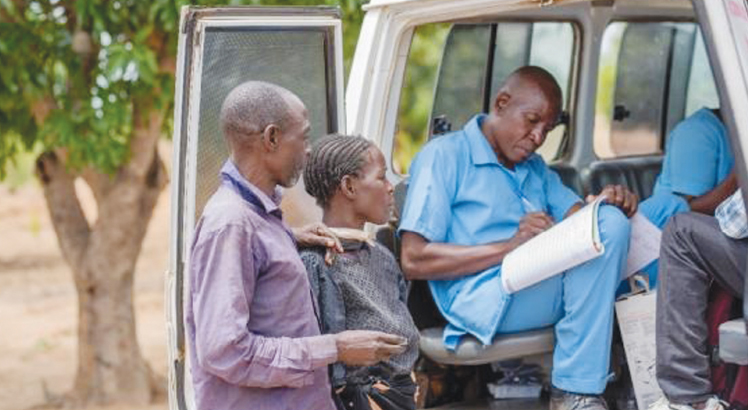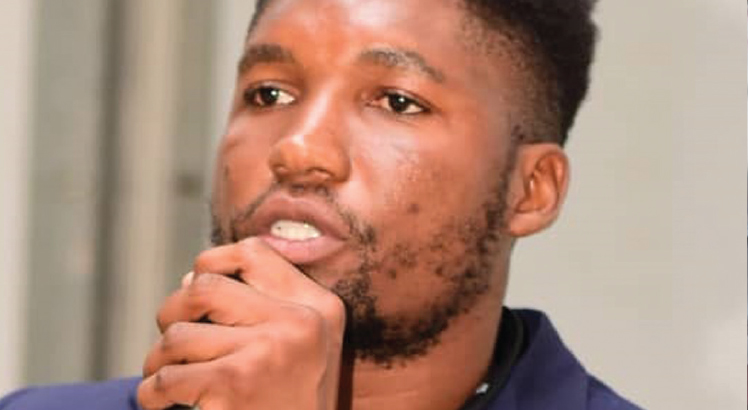It’s a sunny Wednesday in Chimaimba Village north of Chinguluwe Health Centre in Ntchisi District.
As the sun rises in the clear skies, an ambulance adorned with a photograph of President Lazarus Chakwera receiving his second Covid-19 vaccine stops in the clustered village, drops health workers and starts playing hit music much to the excitement of the locals who halt their chores to listen in. Then comes interludes of messages rallying the villagers to ensure every child aged below five is immunised against polio.
Since last year, this ambulance has been taking the Covid-19 vaccines and vaccinators closer to people who need them, helping the nation utilise about 800 000 doses that were expected to expire between October and December 2021.
But this time, it is back to deliver polio shots in Chimaimba and surrounding communities.
From the roadside, health workers are seen squeezing the polio shots into the mouths of children in a house-to-house campaign designed to leave no child behind.
The health surveillance assistants’ (HSA) inroads personifies how the Covid-19 vaccination express strategy has become central in the race to stop the spread of wild poliovirus.
Malawi kicked out polio in 1992, but recently confirmed a case in Lilongwe. President Chakwera promptly declared polio a public health emergency to pave the way for an urgent response.
Now the community’s health workers, already overwhelmed by the urgency to deliver routine immunisation and Covid-19 vaccinations, have to urgently deliver polio shots to halt the possible comeback wave.
Their arrival in Chimaimba excites Irene Joseph, 21, who ordinarily travels about four kilometres for her two-year-old son, Kelvin, to receive routine immunisation in Masokole Village.
She narrates: “My first born died of heart deformity aged just three months old, so I don’t want to lose Kelvin, the second to polio. This is why I was eager to get him vaccinated.
“Bringing vaccines to home has made it simple for me to protect my son.”
Unicef is working with the governments of Malawi, Tanzania, Zambia and Mozambique to vaccinate about 9.4 million children against polio.
Unicef regional director for eastern and southern Africa Mohamed Fall says: “Polio spreads fast and can kill or cause permanent paralysis.”
But the infectious disease can be prevented by vaccinating every child such as Kelvin.
In Malawi, Unicef has procured and distributed 6.8 million doses of polio vaccines for the first two rounds targeting 2.9 million children. Unicef in partnership with the World Health Organisation offered health workers training and cooling props to effectively store and deliver polio vaccines even in the remotest areas. It distributed 170 new vaccines’ refrigerators, 135 refurbished ones and 2 500 vaccine carriers to close cold chain gaps in all 29 districts.
Joseph is not bothered that her son already received four doses of polio vaccine during routine immunisation, starting from hours after birth, then six weeks later and two more doses split four weeks apart.
She is happy that he has to retake it following the discovery of Malawi’s first wild poliovirus case 30 years.
“It is right, timely and necessary to protect every child because a single polio case is a threat to all,” she states.
This is the first time for Joseph to see a child being vaccinated at home.
“The house-to-house initiative has come at the right time. I didn’t have to worry about long distance or exorbitant transport costs. The health workers found me doing my household chores,” she explains.
HSA responsible for Chimaimba and three neighbouring villages, Winstone Maseko participated in the Covid-19 vaccination express campaign by the Ministry of Health with support from Unicef through Kamuzu College of Health Sciences.
Now he is excited to safeguard children from polio using the techniques that popularised Covid-19 vaccine.
The community health worker, who sees 60 to 75 children during routine immunisation clinics in Masokole Village, targeted to vaccinate all 163 children aged under five.
Interestingly, his team of three, together with a volunteer tasked to mobilise community members using a megaphone and a fellow HSA recording children’s biographical details, met the target within two days.
“Going door to door has eliminated the main challenges that discourage parents from ensuring every child is vaccinated, which is long travels and costly transport fares from here to the health centre,” Maseko says.
Chimaimba villagers did not have to perilously cross Kavula River, which has no bridge.
“The door-to-door campaign has helped many children to get vaccinated, even those who skipped scheduled shots in March. With this, it is possible to surpass the current vaccine uptake of about 80 percent,” Maseko explains.
Lokesh Sharma, Unicef vaccine management specialist, says the lessons and equipment from the Covid-19 express campaign have become handy in the delivery of polio shots to children at home.
He explains: “For this vaccine, we adopted an integrated approach. If the vaccination express is going to a remotest area, it drops polio vaccines in health facilities along the way as well as vaccinators to immunise children against polio.
“A lot of thought and planning went into this and it is going according to plan. Recently, I was in Ntcheu where I observed that the vaccine express teams were constantly communicating with the immunisation coordinator and deputy district environmental health officer to deliver more polio vaccine doses where they had shortfalls.”
The post Covid-19 vaccine express power polio immunisation appeared first on The Nation Online.
 Moni Malawi
Moni Malawi 

